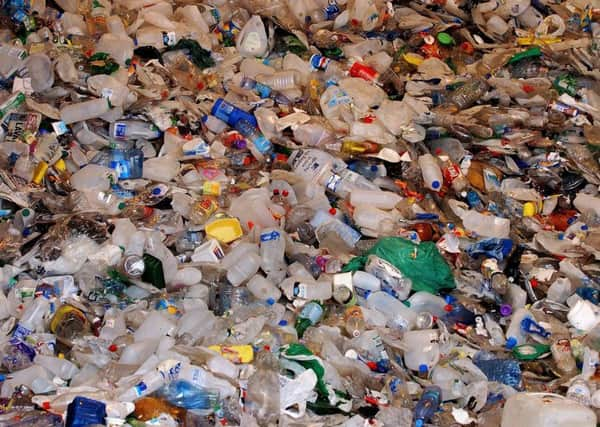North Yorkshire recycles less rubbish now than two years ago, DEFRA figures show


In 2017-18, North Yorkshire recycled or composted 132,512 tonnes of all waste, 42% of the total, according to the latest Department for Environment, Food and Rural Affairs figures.
That figure is worse than two years ago, when 46% of the rubbish was recycled.
Advertisement
Hide AdAdvertisement
Hide AdIncinerator plants burned 36% of the rubbish produced in North Yorkshire. The vast majority was sent to specialist waste power plants to generate heat and electricity.
North Yorkshire also sent 19% of its waste to landfills.
While many households are making an effort to separate their waste, recent reports revealed that a lack of facilities leads to millions of plastic bottles, pots and trays placed in recycling bins being incinerated across the country.
To reduce plastic usage, the Government has announced a ban on the supply of plastic straws, drinks stirrers and cotton buds in England from April 2020.
Recoup, a charity that promotes plastic recycling, said that the problem was linked to China’s decision last year to ban imports of plastic waste, and restrictions introduced by other countries receiving waste from Britain.
Advertisement
Hide AdAdvertisement
Hide AdJulian Kirby, Friends of the Earth plastics campaigner, said people doing their best to recycle plastic will be appalled to find out it’s ending up in incinerators.
He said: “All but a tiny fraction of plastic is made of fossil fuels like oil and gas so burning these pots and packaging contributes to the climate emergency as well as trashing public trust in the recycling industry.”
Councillor Martin Tett, the Local Government Association’s environment spokesman, said: “The best way to reduce waste is through changes to packaging and reducing the waste businesses generate each year, including the amount of unrecyclabes.
“Critical to this goal it is vital that manufacturers and retailers also pay toward the cost of recycling. In 2017, producers only paid £73 million towards the cost of managing waste packing.”